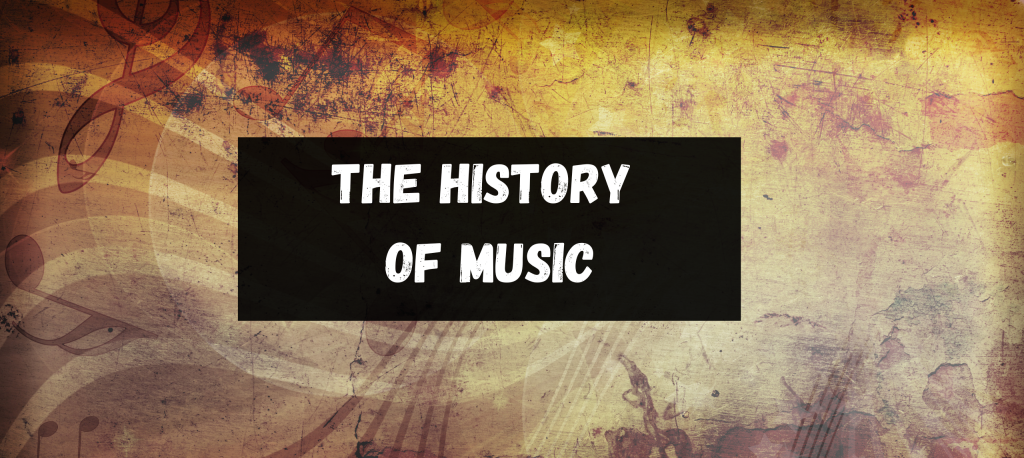August 18, 2023
Howard
Pop music is so pervasive you’ve likely heard it on the radio, at parties, or even hummed along to a catchy tune yourself. But what is pop music? Is it merely a fusion of contemporary beats and musical rhythms, or does it represent something more profound? This complex genre is often subject to popular misconceptions and stereotypes, brushed off as simplistic or superficial. However, pop music holds a rich history, reflecting not just the trends of its time but the very fabric of contemporary culture. There’s more to pop music than meets the ear, and we have some exciting revelations. So keep reading as we unravel the vibrant tapestry of pop music in Britain and beyond.
Defining Pop Music
Understanding the Term “Pop”
‘Pop’ music, short for ‘popular music,’ is a term that has been in use since the mid-20th century, but its roots can be traced back even further. It encompasses various sounds and styles in Britain and worldwide, united by their mass appeal. The word ‘pop’ speaks to the genre’s accessibility and broad reach, cutting across age groups, cultures, and backgrounds.
Core Characteristics
1. Musical Elements:
Pop music is marked by its catchy melodies, repetitive structures, and often upbeat rhythms. While it might borrow from other genres like rock, electronic, and R&B, it typically maintains a consistent, radio-friendly sound. This usually includes a verse-chorus structure and hooks that make the music memorable.
2. Lyrical Themes:
Lyrically, pop songs often explore universal themes such as love, relationships, self-discovery, and the human experience. These relatable subjects and easy-to-understand lyrics help make the genre accessible to a broad audience.
3. Appeal and Audience:
Pop music’s broad appeal lies in its ability to resonate with a diverse audience. Whether it’s a teenager in Manchester or a pensioner in Cornwall, the genre’s universal themes and infectious sound have a way of connecting with listeners from all walks of life.
Pop as a Genre vs. Description
An intriguing aspect of pop music is its dual nature as a genre and a descriptor. Pop has distinct characteristics as a genre, which we’ve explored above. However, it also describes music that achieves widespread popularity, regardless of its stylistic attributes. This duality often leads to confusion, as what might be classified as ‘pop’ in one era might not fit the conventional mould in another.
In essence, pop music is both fluid and multifaceted, reflecting societal changes and cultural trends. It mirrors our collective consciousness, adapting and evolving yet remaining rooted in its ability to speak to the masses.

Varieties of Pop Music
Exploration of Subgenres
Here’s an exploration of some of the popular subgenres of pop music prevalent in the British music landscape:
1. Country-Influenced Pop:
Melding the storytelling tradition of country music with the catchy hooks of pop, country-influenced pop blends acoustic instruments with accessible melodies. This fusion has found a home in the UK, with several artists embracing rustic charm and contemporary flair.
2. Softer Pop Styles:
Sometimes referred to as ‘soft pop’ or ‘easy listening’, mellow tunes and smooth harmonies characterise this subgenre. It often features romantic or sentimental themes, providing a gentle escape from the bustle of modern life.
3. Punk-Infused Pop:
A rebellious offspring of traditional pop, punk-infused pop brings the raw energy of punk rock into the mainstream. With its edgy lyrics and driving rhythms, it has resonated with the youth in Britain, often becoming an anthem for youthful dissent.
4. Experimental Pop Types like Space and Industrial Pop:
Space Pop and Industrial Pop are examples of how experimental pop can be. Space Pop often incorporates cosmic themes and futuristic sounds, whereas Industrial Pop integrates mechanical and synthesised elements. These styles challenge conventional boundaries, offering a unique auditory experience.
5. Indie Pop (Brit Pop):
Independently produced and often away from major labels, Indie Pop maintains the catchy qualities of mainstream pop while often incorporating a more personalised, alternative touch. In Britain, Indie Pop has a robust following, with festivals and venues dedicated to showcasing these often under-the-radar talents.
The vastness of pop music’s subgenres demonstrates its adaptability and inclusivity. From the pastoral landscapes of Country-Influenced Pop to the rebellious tones of Punk-Infused Pop, the genre caters to an array of musical tastes. Whether you favour the avant-garde or the comforting, pop music in Britain has something to offer, reflecting the rich diversity of our cultural fabric.
Historical Insights into Pop Music
Origins and First Use of the Phrase
The term “pop music” emerged in Britain in the mid-20th century, used as a shorthand for “popular music.” Initially, it encompassed a broad range of music enjoyed by the masses but gradually evolved into a genre of its own, reflecting changes in musical style and cultural taste.
B. Pop Music Through the Decades
1. 1950s:
The 1950s marked the birth of modern pop music, with the rise of rock ‘n’ roll and the emergence of icons like Elvis Presley. In Britain, skiffle bands and crooners laid the groundwork for a musical revolution that would flourish in the following decade.
2. 1960s:
The 1960s were a golden era for British pop music, with the rise of the Beatles, the Rolling Stones, and the ‘British Invasion’ of the American charts. This decade also saw the growth of Motown and the early days of psychedelic pop, adding to the diversity of the genre.
3. 1970s and Beyond:
The 1970s heralded the age of glam rock, disco, and punk in the UK. Pop continued to evolve in subsequent decades, with the emergence of electronic pop in the ’80s, the rise of boy bands and girl groups in the ’90s, and the blending of pop with hip-hop and other genres in the 2000s.
Influences on Pop Music’s Popularity
Pop music’s widespread appeal can be attributed to various factors, including technological advancements like television and the internet, allowing greater access to music. Marketing, promotion, and the growth of music festivals also shaped the genre’s success in Britain and globally.
Evolution and Changing Landscape
Pop music has always remained active. It has constantly evolved, reflecting societal changes and technological advancements. The genre has adapted to the digital age, with streaming platforms shaping how we consume music. Additionally, pop has become increasingly global, with British artists influencing and being influenced by international trends.

Iconic Examples of Pop Music
Timeless Tracks with Significance
Pop music has given us an array of timeless tracks that have topped the charts and become integral parts of our cultural fabric. Here’s an exploration of 10-15 significant hits, each bearing its unique significance:
- “Hey Jude” by The Beatles: An anthem of hope and comfort that transcended generations.
- “Thriller” by Michael Jackson: A game-changing track that redefined music videos and performance.
- “Like a Prayer” by Madonna: A provocative song that challenged social norms and ignited conversations.
- “Wannabe” by Spice Girls: A girl-power anthem that became a rallying cry for a generation.
- “Rolling in the Deep” by Adele: A soul-stirring ballad that showcased raw emotion and vocal prowess.
- “Shape of You” by Ed Sheeran: A catchy tune that became a global hit, blurring genre lines.
- “Get the Party Started” by Pink: An energetic pop-rock fusion that became a party staple.
- “Chasing Pavements” by Adele: A heartfelt song that resonated with anyone who’s felt lost or uncertain.
- “Happy” by Pharrell Williams: A joyous track that became a universal feel-good anthem.
- “Someone Like You” by Adele: A ballad that struck a chord with its sincerity and emotional depth.
- “Viva la Vida” by Coldplay: A unique blend of orchestral pop that stood out for its artistry.
- “Can’t Stop the Feeling!” by Justin Timberlake: An infectious dance track that brought people together.
- “Rehab” by Amy Winehouse: A poignant reflection on personal struggles, delivered with unmatched soul.
- “Firework” by Katy Perry: An empowering song that inspired many to embrace their individuality.
- “Uptown Funk” by Mark Ronson and Bruno Mars: A retro-inspired hit that revived funk for a new audience.
Whether a pop classic or a contemporary chart-topper, these tracks continue to define and enrich our musical landscape.
Leading Pop Musicians
Profiles of Influential Artists
The landscape of pop music would be unimaginable without the contributions of its leading figures. These artists have shaped the sound of the genre and transcended it, becoming icons in their own right. Here’s a closer look at some influential pop musicians, their contributions to pop music, and their significant achievements and recognition:
ABBA:
- Contributions: Hailing from Sweden, ABBA’s melodious pop anthems and distinctive harmonies transformed the global music scene, embedding their tunes in the heart of multiple generations and shaping the future of pop and dance music.
- Achievements and Recognition: Winning the Eurovision Song Contest in 1974 catapulted them to international stardom. With a legacy boasting over 380 million albums and singles sold worldwide and hits like “Dancing Queen” and “Mamma Mia,” ABBA’s place in the pantheon of music legends is solidified. Their timeless appeal is further evidenced by the success of the ‘Mamma Mia!’ musical and movies, celebrating the group’s enduring impact.
Madonna:
- Contributions: Known as the “Queen of Pop,” Madonna’s bold and provocative style redefined pop music, pushing boundaries and influencing countless artists.
- Achievements and Recognition: With numerous awards, including seven Grammys, and over 300 million records sold, Madonna’s influence is undeniable.
Michael Jackson:
- Contributions: The “King of Pop” brought an unprecedented fusion of music, dance, and visual artistry, influencing a whole generation of performers.
- Achievements and Recognition: His album “Thriller” remains the best-selling album of all time, and he’s been posthumously honoured with various accolades.
Adele:
- Contributions: Adele’s powerful vocals and heartfelt lyrics have brought a soulful depth to contemporary pop, inspiring many to embrace authenticity in their music.
- Achievements and Recognition: A recipient of 15 Grammy Awards, Adele’s albums have broken numerous records and garnered widespread acclaim.
The Beatles:
- Contributions: Often regarded as the greatest band in history, The Beatles revolutionised pop music with innovative songwriting and experimental sounds.
- Achievements and Recognition: With numerous number-one hits and an unparalleled cultural impact, The Beatles’ legacy continues to be celebrated.
Rihanna:
- Contributions: Rihanna’s versatile style, blending pop with R&B, dance, and reggae, has made her one of the most influential pop musicians of her generation.
- Achievements and Recognition: With nine Grammy Awards and hundreds of millions of records sold, Rihanna’s influence on modern pop is profound.
Ed Sheeran:
- Contributions: Ed Sheeran’s fusion of pop with folk, hip-hop, and R&B has created a unique sound that has resonated with a diverse audience.
- Achievements and Recognition: He has received several awards, including four Grammys, and his tours have broken records for attendance and revenue.
Lady Gaga:
- Contributions: Known for her theatricality and daring fashion, Lady Gaga has been a force in pop, pushing artistic boundaries and advocating for social issues.
- Achievements and Recognition: With numerous awards, including 12 Grammys, Lady Gaga has cemented her place as a pop icon.
These leading figures in pop music have enriched the genre with their talent and creativity and left a lasting impact on the broader musical and cultural landscape. Their contributions continue to be felt, and their achievements are a testament to the power and reach of pop music, particularly in the UK, where many of these artists found their initial success or inspiration. Whether through groundbreaking experimentation or heartfelt expression, these musicians have defined and continue to shape what pop music means to us. Their legacies will continue influencing and inspiring future generations of artists and listeners alike.
Pop Music in Contemporary Culture
Perception and Criticism
Pop music’s pervasive presence in contemporary culture has often led to varied perceptions and criticisms. While many celebrate its catchy melodies and broad appeal, others criticise it for perceived superficiality or formulaic compositions. The genre’s inclination towards commercial success sometimes draws accusations of lacking depth or artistic integrity. If you’re a creator setting out to create a song for monetary and not artistic or creative reasons, then that may upset many art purists. But for artists like The Beatles, that was their initial way to mass appeal, and then as their band career developed, they gradually got more creative and artistic.
Role of Appearance and Image in Pop Stardom
In pop music, appearance and image play a pivotal role in an artist’s success. From glamorous music videos to carefully curated public personas, the visual aspect of pop stardom often outweights, if not sometimes equals, the musical content. This focus on aesthetics is often viewed with scepticism, with some arguing that it can overshadow genuine talent. Yet, the intertwining of music and visual artistry can also be seen as a creative expression, adding layers of meaning and accessibility to the music.
The Relationship Between Pop and Other Musical Genres
Pop music’s relationship with other musical genres is both complex and symbiotic. While maintaining its core principles, pop continuously draws from and integrates elements of rock, jazz, classical, hip-hop, and more. This amalgamation often leads to new subgenres and innovative musical expressions. Conversely, pop’s mainstream appeal can introduce broader audiences to niche genres, enriching the musical landscape and fostering cross-genre collaboration and appreciation.
Conclusion
Pop music, in its essence, encapsulates the pulse of the masses, mirroring society’s shifting tastes, desires, and sentiments. It’s a genre that doesn’t merely reflect popular culture but actively shapes it. With its versatile nature, pop music has consistently demonstrated its ability to adapt and evolve, absorbing influences from myriad sources while always staying true to its core principle: to resonate with a broad audience.
The dominance of pop music within the global soundscape is hardly coincidental. Its inherent adaptability ensures its relevance across generations and geographies. Beyond its catchy melodies and rhythmic allure, pop taps into universal emotions and narratives, granting it a timeless quality. Its broad appeal is rooted in its ability to unite diverse listeners, creating shared moments and memories spanning age, culture, and background.
While the foundations of pop remain consistent, its future is as unpredictable as the society it mirrors. With technological advancements, changing global dynamics, and the continuous blending of cultures and genres, pop music stands at the precipice of further evolution. Yet, one thing remains certain: its enduring appeal and ability to connect people.
As we reflect on its past and look towards the future, we’re reminded of pop music’s unparalleled ability to evolve, inspire, and unite. The journey of pop music is far from over, and its next chapter promises to be as vibrant and impactful as its storied past.
Fancy More?

Howard Head
I turn confused bass enthusiasts into bass gods through a simple and logical process.

















